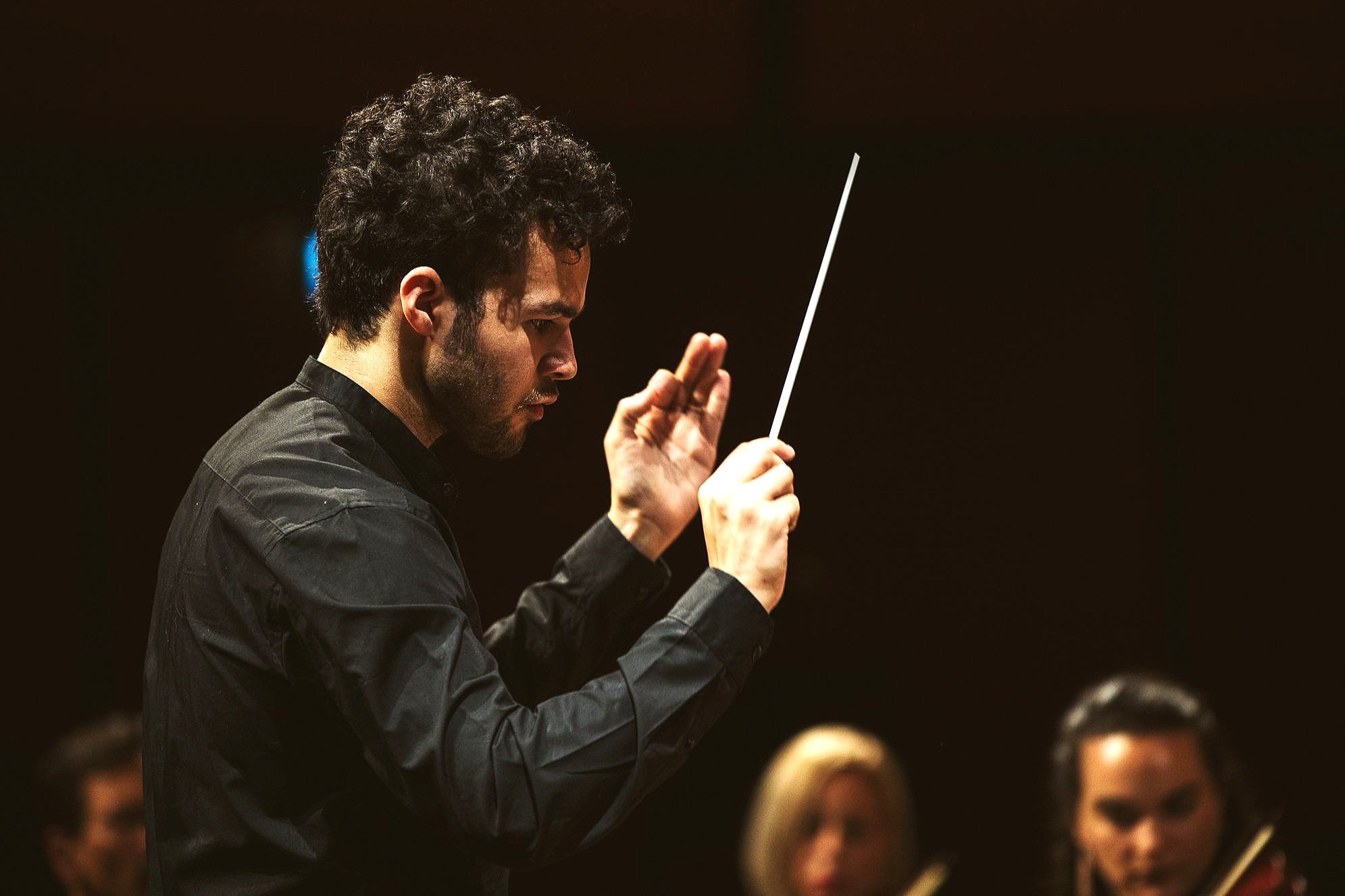The British writer and performer recently collaborated with National Orchestra for All, so we caught up with him to find out more…
1. Please introduce yourself and tell us a little about what you do.
I’m Ben Macpherson, a writer and performer based in Nottingham whose work stretches from serious theatre all the way through to nonsense poetry aimed at children and their families. Within that work is sketch comedy that has been heard on Radio 4, improvised plays from the Star Wars universe and much more.
Linking all of these together is a feeling of playfulness and the role of individuals in relation to their community. For over a decade I’ve been a part of the Nottingham creative scene, making connections in theatre, comedy and spoken word circles. This has led to a career that thinks across medium, building works that draw on many different disciplines for a pretty unique writer and performer.
2. Who (or what) inspired you to become a writer and performer?
My route to becoming a creative came through nonsense poetry and sketch comedy. I fit this around a normal job for seven years after university but the opportunity to go full-time came up in 2020 and I took it.
It was a bit scary making that choice during a pandemic but well worth it now. As I worked at my craft I got involved with improv (improvisational) theatre, scripted theatre and more serious spoken word, so I am now excited to work in any range of fields that I get to explore words in.
Read more: ‘The Way We See It’ – National Orchestra for All’s Nottingham concert in pictures >
Pictured: Spoken word artist, Ben Macpherson, runs a creative workshop with National Orchestra for All
3. What have been some of your career highlights so far?
With such a wide range of work, it is hard to choose any one particular highlight. Working on my first full length play earlier in 2022 was wonderful. It is called Horsemen, and tells the tale of the four horsemen of the apocalypse immediately after the world ends when they are stuck in a limbo of their own creation.
It was dark, funny and ultimately hopeful about choosing the right path for yourself. I’m also very proud of working with Michael Rosen at the Nottingham Poetry Festival.
4. You recently collaborated with National Orchestra for All in Nottingham – could you tell us a little about that?
I was recently brought in to work with NOFA members as a spoken word artist to create new spoken word sections for Benjamin Britten’s ‘Young Person’s Guide to the Orchestra.’ The piece originally takes its audience through the sections and instruments of an orchestra step by step but the plan for this work was to capture the spirit of an orchestra.
We explored what it means to the young people who are part of it. The group I worked with created so much and shared so freely, exploring their relationships with each other, their instruments, their sections and the expectations put on them as musicians. I was so proud of what they had achieved, the full symphony of personal, poignant and playful.
Learn more about National Orchestra for All >
5. What did you enjoy the most about working with NOFA?
It was delightful to see these musicians show their creativity in a different way. Skills in rhythm and timing came so naturally to them and the pieces were so varied and creative, from an acrostic poem exploring the panic of a musician performing to the back and forth of two performers ribbing each other’s sections for being too loud or egotistical. Everyone shared their words courageously and got a brilliant response.
“The group of young musicians I worked with at NOFA created so much and shared so freely,” says Ben
6. Comedy writing is your “first great love” – did you try to incorporate this into your work with NOFA?
Absolutely! Often people get intimidated by spoken word and poetry because it feels like it needs to be serious, worthy or introspective. As a comedian I have learnt to take comedy seriously and as for whether something is worthy or not, it is our job as performers to decide what is worthy for an audience.
Who says what we examine in ourselves has to be painful? Sharing and exploring fun naturally creates comedy, because we laugh at the connection we recognise in others. The NOFA members who shared their words invited audiences into their world, where we could connect with familiar relationships and feelings – no wonder that got laughs!
7. Why do you feel that diversity, inclusion and youth voice are so important in today’s world?
The decision makers in the arts so often fit a particular mould. They often come from a degree privilege with traits that align with a western patriarchal optimum. That is increasingly not reflective of society where, as the world shrinks more voice can be heard.
By putting diversity and inclusion at the heart of your creative work, you help tell new and exciting stories. You hear songs that you don’t know the words to and you discover something new. Of course, new can be scary and challenging but by embracing this an engine of collaborations get discovered.
Youth voice is the fuel that drives the engine. If young voices aren’t included then arts go extinct and you see a shrinking cultural literacy and interest of the population. If that diminishes it becomes harder for everyone, from programmers to performers, to keep the arts alive.
Ben Macpherson prepares National Orchestra for All’s young musicians for their final summer performance
8. If you could share three top tips with aspiring writers/performers, what would they be?
If you want to write it, it’s worth writing about. If you want to perform it, it is worth performing. The only person you have to please with what you create is yourself. Audiences and praise are fun (really, really fun), but if what you are doing doesn’t matter to you then it will slowly take the joy from it.
Find your community. They will help you grow and teach you more than you could imagine. If performing is your thing then try a theatre group or comedy open mic night. If writing is more your speed, then there are dozens of writing support groups and you can find these both online and in person. The barriers are coming down.
If something is worth doing, it is worth doing badly. As creatives it is easy to get caught up in the pursuit of perfect. The problem with that is perfect is subjective. Our memories make things perfect so write the terrible first version of an idea, recite your poem and forget your words. You can always edit and fine tune later.
9. And finally, why should people join Orchestras for All’s mission in breaking down barriers to music-making?
Orchestras for All is vital for the future of orchestral music. It directly challenges the paradigm of elitist music by putting the notes in the instruments of the musicians, not the hands of the people who can pay for it. In one of our writing sessions we talked about how the group engaged with orchestral music outside of the NOFA setting and one of the most popular ways was the music of film and video games.
These routes have broken down barriers to hearing the music of an orchestra, so why should the barriers to making orchestral music be any higher? If great young musicians are gradually blocked out then the musical world shrinks and creativity withers until audiences are stuck hearing the same canon of canons, symphonies and fugues as the art fossilises. With the amazing talent and dedication of NOFA’s performers, tutors and organisers that will not be allowed to happen.
Please support our life-changing work with young musicians and donate today >





























































